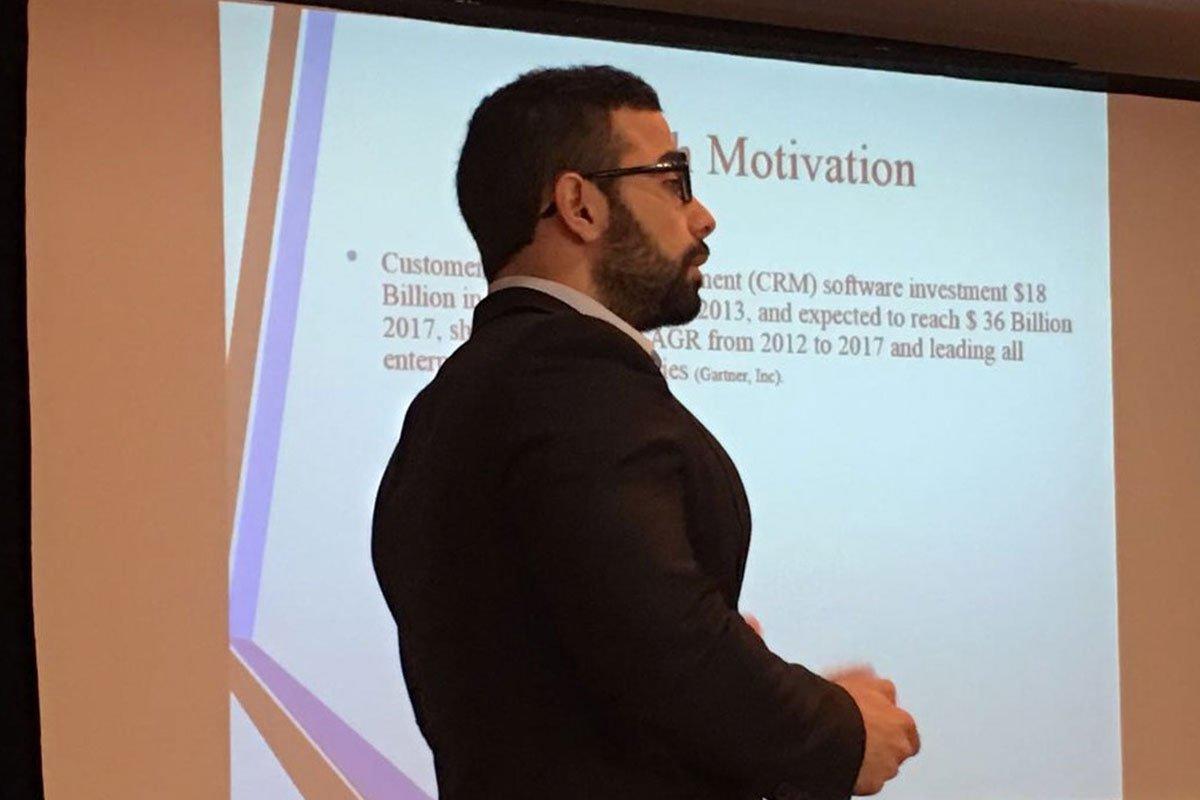Research Highlight: What Is SocialCRM and Why Is It Important for Sales?
AKSOB faculty’s research revolves around the role and impact of sales-based social media and CRM technology.
The emergence of social media technologies has drastically changed the face of the customer relationship management (CRM) approach used by sales organizations, namely the firms’ relationships and interactions with its customers in the business-to-business context.
Accordingly, the integration of both social media and CRM technologies in sales – SocialCRM – has resulted in a growing need to understand the influence of this integration on the buyer-seller relationship and salesperson performance.
In his co-authored study, published in the Journal of Business Research, Assistant Professor of Marketing at the Adnan Kassar School of Business (AKSOB) Omar Itani examined the interactive effects of sales-based CRM technologies and social media on post-sale service behaviors in a long-term buyer-seller relationship.
During the course of an interview, Dr. Itani claimed that “sales is not only about selling anymore, but about serving customers and co-creating value with them,” pointing out that salespeople using CRM technology in conjunction with social media are more likely to exhibit higher levels of post-sale service behaviors than their counterparts with low social media technology use.
“In an era of social selling, social media tools have forced salespeople to focus on new methods to gain information about customers, understand their needs, and serve them better,” he explained. “But they should not forget that CRM technologies also exist to help them in their relationship with customers,” he added.
SocialCRM combines customer-facing activities, including processes and systems, with emergent social media applications to engage customers in collaborative conversations and enhance buyer-seller relationship. For example, LinkedIn and Salesforce provide the option to integrate their systems to leverage the benefits of SocialCRM.
Although the use of social media as an added technological tool in the sales technology toolbox is still a novelty, research suggests that “social media technologies are not a replacement for existing sales technology but are instead complimentary to present ones,” according to Dr. Itani.
“Social media takes the traditional CRM set of functions applicable to sales and marketing and extends it by integrating a social component to the traditional CRM we know,” which leads to the ultimate drive of performance “by means of growing organizations’ resources and capabilities.”
Primarily, by employing both tools at their salesforce level, organizations can “gain more knowledge, increase the performance of their salesforce and involve customers in an effective information exchange system,” explained Dr. Itani.
Likewise, merging different operational components of CRM technology and the resources of social media allows sales organizations to better execute their knowledge-based activities and maintain a competitive advantage.
“SocialCRM creates a collaborative system that can bring better relational and sales outcomes,” Dr. Itani said.
As it combines internal and external information and tacit knowledge, SocialCRM enhances salespeople’s interaction and communication with customers in favor of facilitating the value co-creation process.
“This is highly effective because it overcomes the limitations of using social media or CRM technology when used separately,” Dr. Itani clarified.
Besides the impact of SocialCRM on service behaviors, Dr. Itani is conducting additional studies to look into different concepts related to the compensatory power of SocialCRM with respect to salesperson’s knowledge, selling experience, and value co-creation.
“In one of the studies, we argue that social media and CRM technology aids as a vital job resource that is differently utilized by salespeople based on their experience,” Dr. Itani explained.
“In today’s market, salespeople need to act as knowledge brokers and consultants in order to sell their offerings. Without using sales-based technology, they are less likely to accomplish these acts and achieve optimal performance,” he concluded.
